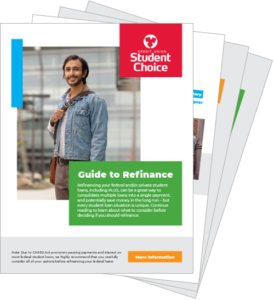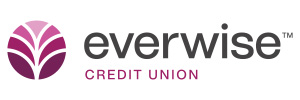
Real borrower stories
The process was quick and easy. I was approved for a maximum amount that I can have easy access to if I ever need to get more money for school tuition instead of having to submit an application every time.
I have enjoyed the flexibility and ease of this private student lending. It was the perfect option for me and I am very glad that it was recommended to me.
I feel the credit union’s private student lending program is a fit for most people’s needs. I would recommend it to most anyone.
The application process was very easy and all of the staff members were helpful, kind, and professional.
This should be any USC student/parent’s first choice when seeking a private education loan.
I have had a great experience with the credit union for both of my daughters’ student loans. Everything is easy to do online and whenever I have to call with a question, I always get top notch customer service.
Compared to the loan my son got from another lender, this was much faster and easier.
The simplicity of requesting a line of credit to be used is so much simpler than having to reapply every year for another loan.
While speaking to a loan officer we were given lots of great information so we could make informed decisions.
The application process was quick and easy. When we called with questions they were answered quickly. The entire process was extremely efficient.
How to get started
Frequently Asked Questions
Many of our credit union lenders offer a cosigner release option based on on-time payment history and other requirements. We recommend reviewing specific criteria on the credit union lender’s website.
Fixed Interest Rate
A fixed rate loan is exactly as it sounds – the interest rate is fixed, or stays the same, for the entire life of your loan.
Pros: You’ll know what your interest rate is and won’t have to worry about fluctuations down the road.
Cons: The tradeoff for knowing what your rate will be for the long haul is that it is often a higher rate to start than a variable rate option.
Variable Interest Rate
When you select a variable rate loan, your interest rate will fluctuate over time based on the current index rate. Your lender adds a percentage to that base according to your credit score and history, and there is usually a limit or “ceiling rate” on how high your rate can go if the index increases.
Pros: Variable rate options are typically lower than fixed rate at the start of your loan. Additionally, if the index decreases in the future, so will your interest rate.
Cons: There is risk involved; while your rate could go down, it could also increase, meaning you will pay more in interest over time.
You can refinance all or some of your student loans – whichever option is best for you. Some borrowers choose not to refinance their federal student loans so they can hold on to existing benefits such as income based repayment plans or loan forgiveness.
Your student loans can be refinanced if they are in grace or repayment after you’ve graduated from an approved school.
Yes! If you have previously refinanced some or all of your student loans, you may wish to refinance again to take advantage of a lower rate.
Yes, you should continue to make your payments while your application is in process. You will be notified when the funds have been sent to the applicable servicers.
All loans being refinanced must be post separation from school.
Federal Education Loans:
- Federal Family Education Loan Program (FFELP)
- Subsidized or Unsubsidized (aka Stafford Loan)
- Grad or Parent PLUS William D. Ford Direct Loan Program Subsidized or Unsubsidized (aka Direct Stafford Loan)
- William D. Ford Direct Loan Program Undergraduate, Grad or Parent PLUS
- Perkins, Nursing or Health Education Assistance (HEAL)
- Consolidation
If you choose to refinance a federal loan, you will lose federal student loan benefits such as income driven repayment or loan forgiveness options that may be available on your current federal loan(s). In addition, federal student loans offer deferment and forbearance options that may not be available to you if you take out a private refinance loan. You may qualify for a Federal Direct Consolidation Loan. For additional information about a consolidation option for federal loans, contact the Department of Education at: studentaid.gov. See disclaimers for more details.
Private Education Loans:
- Undergrad
- Graduate
- Consolidation
Institutional Education Loans:
- Undergrad
- Graduate
- Consolidation
Consolidation means you are simply combining existing loans. Your total payment amount and total interest will likely remain the same, but you’ll have the convenience of making one payment rather than multiple payments. This type of loan is usually associated with federal government student loans.
When you refinance, you are taking out a single new loan to pay off your old ones. You’ll probably have a new interest rate, new terms, and a different monthly payment amount. This is the loan solution offered by your credit union.
You do not need to be a member to start the application, but you will need to be a member of the credit union before you can receive funding.
Guide to Student Loan Refinance
Everyone’s situation is unique, and figuring out where to start can be tough. Learn more about your options and decide if student loan refinance is right for you!

- The pros and cons to student loan refinance
- The difference between student loan refinance and consolidation
- Helpful resources to determine your student loan refinance options
- Information to help you decide if refinancing your student loans is right for you
† Using the free student loan payment calculator does not constitute an offer to receive a loan and will not solicit a loan offer. Any payments and savings will depend on the actual amounts for which you are approved, should you choose to apply. This calculator is provided for educational purposes only and should not be relied upon as financial advice. Always consult your credit union or financial advisor when making your decision.
* APR = Annual Percentage Rate. Rates shown include a 0.25% discount for optional enrollment in automatic electronic payments. Variable rates subject to increase after consummation. Rates vary by credit union and depend on credit union membership eligibility. Please use our search tool to find the lowest rate for which you may be eligible.
◊ Subject to credit qualification and additional criteria, including graduating from an approved school.
Remember that by refinancing federal student loans, you will lose certain borrower benefits from your original loans. These may include interest rate discount, principal rebates, or some cancellation/forgiveness benefits that can significantly reduce the cost of repaying your loans. Please consider these benefits carefully when considering your options for refinancing federal student loans.
























